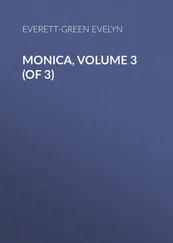Friedrich Max Müller - Chips from a German Workshop, Volume 1
Здесь есть возможность читать онлайн «Friedrich Max Müller - Chips from a German Workshop, Volume 1» — ознакомительный отрывок электронной книги совершенно бесплатно, а после прочтения отрывка купить полную версию. В некоторых случаях можно слушать аудио, скачать через торрент в формате fb2 и присутствует краткое содержание. Жанр: foreign_prose, foreign_antique, на английском языке. Описание произведения, (предисловие) а так же отзывы посетителей доступны на портале библиотеки ЛибКат.
- Название:Chips from a German Workshop, Volume 1
- Автор:
- Жанр:
- Год:неизвестен
- ISBN:нет данных
- Рейтинг книги:3 / 5. Голосов: 1
-
Избранное:Добавить в избранное
- Отзывы:
-
Ваша оценка:
- 60
- 1
- 2
- 3
- 4
- 5
Chips from a German Workshop, Volume 1: краткое содержание, описание и аннотация
Предлагаем к чтению аннотацию, описание, краткое содержание или предисловие (зависит от того, что написал сам автор книги «Chips from a German Workshop, Volume 1»). Если вы не нашли необходимую информацию о книге — напишите в комментариях, мы постараемся отыскать её.
Chips from a German Workshop, Volume 1 — читать онлайн ознакомительный отрывок
Ниже представлен текст книги, разбитый по страницам. Система сохранения места последней прочитанной страницы, позволяет с удобством читать онлайн бесплатно книгу «Chips from a German Workshop, Volume 1», без необходимости каждый раз заново искать на чём Вы остановились. Поставьте закладку, и сможете в любой момент перейти на страницу, на которой закончили чтение.
Интервал:
Закладка:
First of all, the religion of the Veda knows of no idols. The worship of idols in India is a secondary formation, a later degradation of the more primitive worship of ideal gods.
The gods of the Veda are conceived as immortal: passages in which the birth of certain gods is mentioned have a physical meaning: they refer to the birth of the day, the rising of the sun, the return of the year.
The gods are supposed to dwell in heaven, though several of them, as, for instance, Agni, the god of fire, are represented as living among men, or as approaching the sacrifice, and listening to the praises of their worshippers.
Heaven and earth are believed to have been made or to have been established by certain gods. Elaborate theories of creation, which abound in the later works, the Brâhma n as, are not to be found in the hymns. What we find are such passages as:
'Agni held the earth, he stablished the heaven by truthful words' (Rv. I. 67, 3).
'Varu n a stemmed asunder the wide firmaments; he lifted on high the bright and glorious heaven; he stretched out apart the starry sky and the earth' (Rv. VII. 86, 1).
More frequently, however, the poets confess their ignorance of the beginning of all things, and one of them exclaims:
'Who has seen the first-born? Where was the life, the blood, the soul of the world? Who went to ask this from any that knew it? (Rv. I. 164, 4). 25
Or again, Rv. X. 81, 4: 'What was the forest, what was the tree out of which they shaped heaven and earth? Wise men, ask this indeed in your mind, on what he stood when he held the worlds?'
I now come to a more important subject. We find in the Veda, what few would have expected to find there, the two ideas, so contradictory to the human understanding, and yet so easily reconciled in every human heart: God has established the eternal laws of right and wrong, he punishes sin and rewards virtue, and yet the same God is willing to forgive; just, yet merciful; a judge, and yet a father. Consider, for instance, the following lines, Rv. I. 41, 4: 'His path is easy and without thorns, who does what is right.'
And again, Rv. I. 41, 9: 'Let man fear Him who holds the four (dice), before he throws them down (i. e. God who holds the destinies of men in his hand); let no man delight in evil words!'
And then consider the following hymns, and imagine the feelings which alone could have prompted them:
1. Let me not yet, O Varu n a, enter into the house of clay; have mercy, almighty, have mercy!
2. If I go along trembling, like a cloud driven by the wind; have mercy, almighty, have mercy!
3. Through want of strength, thou strong and bright god, have I gone wrong; have mercy, almighty, have mercy!
4. Thirst came upon the worshipper, though he stood in the midst of the waters; have mercy, almighty, have mercy!
5. Whenever we men, O Varu n a, commit an offence before the heavenly host, whenever we break the law through thoughtlessness; have mercy, almighty, have mercy!
And again, Rv. VII. 86:
1. Wise and mighty are the works of him who stemmed asunder the wide firmaments (heaven and earth). He lifted on high the bright and glorious heaven; he stretched out apart the starry sky and the earth.
2. Do I say this to my own self? How can I get unto Varu n a? Will he accept my offering without displeasure? When shall I, with a quiet mind, see him propitiated?
3. I ask, O Varu n a, wishing to know this my sin. I go to ask the wise. The sages all tell me the same: Varu n a it is who is angry with thee.
4. Was it an old sin, O Varu n a, that thou wishest to destroy thy friend, who always praises thee? Tell me, thou unconquerable lord, and I will quickly turn to thee with praise, freed from sin.
5. Absolve us from the sins of our fathers, and from those which we committed with our own bodies. Release Vasish t ha, O king, like a thief who has feasted on stolen oxen; release him like a calf from the rope.
6. It was not our own doing, O Varu n a, it was necessity (or temptation), an intoxicating draught, passion, dice, thoughtlessness. The old is there to mislead the young; even sleep brings unrighteousness.
7. Let me without sin give satisfaction to the angry god, like a slave to the bounteous lord. The lord god enlightened the foolish; he, the wisest, leads his worshipper to wealth.
8. O lord Varu n a, may this song go well to thy heart! May we prosper in keeping and acquiring! Protect us, O gods, always with your blessings!
The consciousness of sin is a prominent feature in the religion of the Veda, so is likewise the belief that the gods are able to take away from man the heavy burden of his sins. And when we read such passages as 'Varu n a is merciful even to him who has committed sin' (Rv. VII. 87, 7), we should surely not allow the strange name of Varu n a to jar on our ears, but should remember that it is but one of the many names which men invented in their helplessness to express their ideas of the Deity, however partial and imperfect.
The next hymn, which is taken from the Atharva-veda (IV. 16), will show how near the language of the ancient poets of India may approach to the language of the Bible: 26
1. The great lord of these worlds sees as if he were near. If a man thinks he is walking by stealth, the gods know it all.
2. If a man stands or walks or hides, if he goes to lie down or to get up, what two people sitting together whisper, king Varu n a knows it, he is there as the third.
3. This earth, too, belongs to Varu n a, the king, and this wide sky with its ends far apart. The two seas (the sky and the ocean) are Varu n a's loins; he is also contained in this small drop of water.
4. He who should flee far beyond the sky, even he would not be rid of Varu n a, the king. His spies proceed from heaven towards this world; with thousand eyes they overlook this earth.
5. King Varu n a sees all this, what is between heaven and earth, and what is beyond. He has counted the twinklings of the eyes of men. As a player throws the dice, he settles all things.
6. May all thy fatal nooses, which stand spread out seven by seven and threefold, catch the man who tells a lie, may they pass by him who tells the truth.
Another idea which we find in the Veda is that of faith: not only in the sense of trust in the gods, in their power, their protection, their kindness, but in that of belief in their existence. The Latin word credo, I believe, is the same as the Sanskrit s raddhâ, and this s raddhâ occurs in the Veda:
Rv. I. 102, 2. 'Sun and moon go on in regular succession, that we may see, Indra, and believe.'
Rv. I. 104, 6. 'Destroy not our future offspring, O Indra, for we have believed in thy great power.'
Rv. I. 55, 5. 'When Indra hurls again and again his thunderbolt, then they believe in the brilliant god.' 27
A similar sentiment, namely, that men only believe in the gods when they see their signs and wonders in the sky, is expressed by another poet (Rv. VIII. 21, 14):
'Thou, Indra, never findest a rich man to be thy friend; wine-swillers despise thee. But when thou thunderest, when thou gatherest (the clouds), then thou art called, like a father.'
And with this belief in god, there is also coupled that doubt, that true scepticism, if we may so call it, which is meant to give to faith its real strength. We find passages even in these early hymns where the poet asks himself, whether there is really such a god as Indra,—a question immediately succeeded by an answer, as if given to the poet by Indra himself. Thus we read Rv. VIII. 89, 3:
'If you wish for strength, offer to Indra a hymn of praise: a true hymn, if Indra truly exist; for some one says, Indra does not exist! Who has seen him? Whom shall we praise?'
Читать дальшеИнтервал:
Закладка:
Похожие книги на «Chips from a German Workshop, Volume 1»
Представляем Вашему вниманию похожие книги на «Chips from a German Workshop, Volume 1» списком для выбора. Мы отобрали схожую по названию и смыслу литературу в надежде предоставить читателям больше вариантов отыскать новые, интересные, ещё непрочитанные произведения.
Обсуждение, отзывы о книге «Chips from a German Workshop, Volume 1» и просто собственные мнения читателей. Оставьте ваши комментарии, напишите, что Вы думаете о произведении, его смысле или главных героях. Укажите что конкретно понравилось, а что нет, и почему Вы так считаете.












